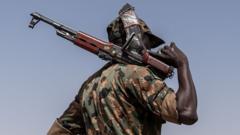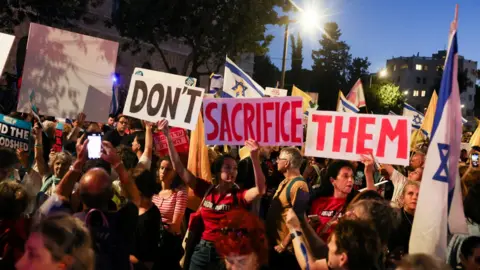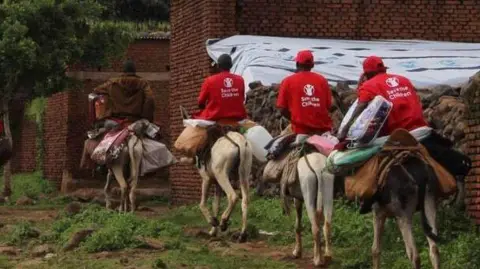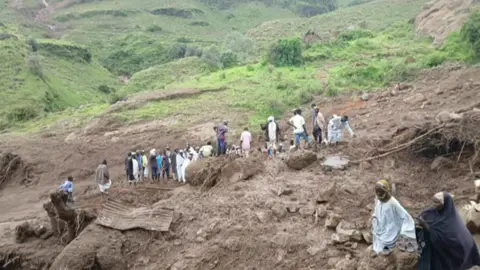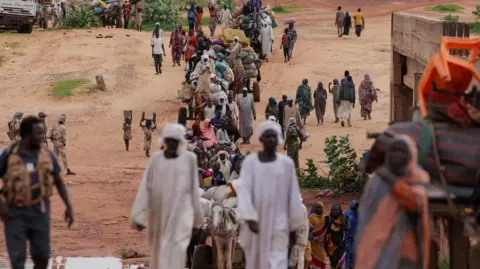Kordofan, a pivotal and oil-rich region in Sudan, has recently become the main focus of intense conflict between the national army and the rival paramilitary forces, marking a significant chapter in a civil war that has plagued the nation for over two years. This strategic region, comprising three states with nearly eight million inhabitants, is vital not only for Sudan's economy but also for neighboring South Sudan, which depends on its oil pipelines for exports.
Earlier this month, a series of attacks resulted in the tragic loss of hundreds of civilian lives, drawing international attention to the urgent fight for control over Kordofan's resources. "Holding Kordofan means controlling Sudan’s oil supply and a vast area of the country," emphasized Amir Amin, a risk analyst with Oasis Policy Advisory.
As tensions escalated since June, the military’s operations aimed to reclaim territory from the RSF, who had gained ground in previous months and regained control of the capital, Khartoum, and Gezira state, known for its agricultural output. Sudan’s military leader, Gen Abdel Fattah al-Burhan, visited Khartoum's airport on June 20 for the second time since his forces expelled RSF fighters, indicating ongoing instability in the city's once bustling locale.
Displacement has reached alarming levels, with roughly 12 million people forced from their homes, mirroring the population of Tunisia or Belgium. The RSF's initial takeover of Khartoum in April 2023 triggered the violence, following a breakdown in relations between Gen Burhan and RSF leader Gen Mohamed Hamdan Dagalo, or "Hemedti." The two had previously collaborated to oust dissent against the military, only to turn against each other over differences regarding the RSF's integration into the army.
Analysts suggest the military's objective in Kordofan is to undermine the RSF's power, potentially enabling an advance into Darfur, the group’s stronghold. Conversely, the RSF views control of Kordofan as crucial for regaining momentum and proximity to central Sudan and the capital.
International observers, including the UN, have condemned recent military airstrikes on civilian areas, citing the indiscriminate targeting of schools and shelters. The United Nations Office for the Coordination of Humanitarian Affairs (Ocha) recorded significant casualties, with over 20 deaths linked to the strikes in el-Fula and Abu Zabad, and underscoring a breach of international humanitarian standards.
In light of the growing violence, reports indicate that the RSF is preparing for an offensive to capture el-Obeid, North Kordofan’s capital, leading to further concerns among humanitarian groups about escalating civilian casualties. The situation in Kordofan, where both the military and RSF maintain control over different territories, underscores the critical stakes involved; the outcome of this fierce confrontation is predicted to shape the future of the conflict and its humanitarian implications, emphasizing the need for urgent intervention and resolution efforts.
Earlier this month, a series of attacks resulted in the tragic loss of hundreds of civilian lives, drawing international attention to the urgent fight for control over Kordofan's resources. "Holding Kordofan means controlling Sudan’s oil supply and a vast area of the country," emphasized Amir Amin, a risk analyst with Oasis Policy Advisory.
As tensions escalated since June, the military’s operations aimed to reclaim territory from the RSF, who had gained ground in previous months and regained control of the capital, Khartoum, and Gezira state, known for its agricultural output. Sudan’s military leader, Gen Abdel Fattah al-Burhan, visited Khartoum's airport on June 20 for the second time since his forces expelled RSF fighters, indicating ongoing instability in the city's once bustling locale.
Displacement has reached alarming levels, with roughly 12 million people forced from their homes, mirroring the population of Tunisia or Belgium. The RSF's initial takeover of Khartoum in April 2023 triggered the violence, following a breakdown in relations between Gen Burhan and RSF leader Gen Mohamed Hamdan Dagalo, or "Hemedti." The two had previously collaborated to oust dissent against the military, only to turn against each other over differences regarding the RSF's integration into the army.
Analysts suggest the military's objective in Kordofan is to undermine the RSF's power, potentially enabling an advance into Darfur, the group’s stronghold. Conversely, the RSF views control of Kordofan as crucial for regaining momentum and proximity to central Sudan and the capital.
International observers, including the UN, have condemned recent military airstrikes on civilian areas, citing the indiscriminate targeting of schools and shelters. The United Nations Office for the Coordination of Humanitarian Affairs (Ocha) recorded significant casualties, with over 20 deaths linked to the strikes in el-Fula and Abu Zabad, and underscoring a breach of international humanitarian standards.
In light of the growing violence, reports indicate that the RSF is preparing for an offensive to capture el-Obeid, North Kordofan’s capital, leading to further concerns among humanitarian groups about escalating civilian casualties. The situation in Kordofan, where both the military and RSF maintain control over different territories, underscores the critical stakes involved; the outcome of this fierce confrontation is predicted to shape the future of the conflict and its humanitarian implications, emphasizing the need for urgent intervention and resolution efforts.

